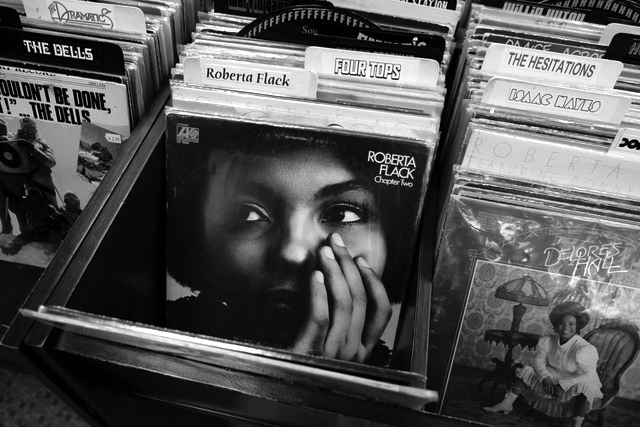Denying Black Musicians Their Royalties Has a History Emerging Out of Slavery
By: Olufunmilayo Arewa, Temple University Beasley School of Law and Matt Stahl, Western University

In the summer of 2020, Black Lives Matter (BLM) activism included voices arguing for economic justice in the recording industry. The Black Music Action Coalition (BMAC) demanded music industry executives account for “inequities in the treatment of Black artists.” These organizations spotlighted what cultural anthropologist Maureen Mahon calls the recording industry’s “racialized political economy.” Mahon writes that Black performers “occupy a subordinate position,” even as their music serves as a “central creative resource” in the industry and the culture. It’s long been suspected by performers, scholars and critics that negligent and even fraudulent accounting practices denied African American artists opportunities to accumulate wealth and enter the American middle class.
We have been studying racialized contracting and accounting in the recording industries since 2015. We have presented our findings at academic conferences, in academic journals and a forthcoming book. Through our research, we have discovered archival evidence documenting how some of these systems produced tragic outcomes for many artists.
Sam Moore’s lawsuit
In the spring of 1993, Sam Moore (of R&B duo Sam & Dave) had a decades-long career with numerous hits including “Soul Man” and “Hold On, I’m Coming.” Moore planned to quit touring and enjoy the fruits of his long career. He wrote to The Health and Retirement Funds (H&R Funds) of the American Federation of Television and Radio Artists (AFTRA) to inquire about the status of his pension. The H&R Funds informed Moore that he was entitled to a single payment of US$2,285, and a monthly payment of US$67, for up to five years. These figures were based on their calculation of his earnings since the early 1960s: around US$66,000. Moore estimated his earnings to be more like US$3 million, and his pension to be around US$9,000 per month.
Moore and a dozen other singers sued the AFTRA H&R Funds for failing to accurately monitor earnings and to enforce Atlantic Records’ contractually mandated contributions to his healthcare and retirement accounts. After 9 years, the suit settled for US$8.4 million, of which Moore’s share was only a small fraction after disbursements to co-plaintiffs and lawyer’s fees.
Historical precedents
Nearly 20 years later, BLM and BMAC have provoked renewed industrial self-scrutiny. In December 2020, BMG Rights Management reviewed its recording contracts for racial discrimination and found “significant” racial disparities in royalty payouts to Black artists in four of its labels. These findings were not surprising. Commentators have long noted adverse contractual terms for African American recording artists. Systematic exploitation of African American musicians reflects patterns of relationships established during and after slavery. Plantations were enterprises that accounted for slaves as assets in ways that continue to shape business practice today.
Historian Caitlin Rosenthal writes that slaveholders “built an innovative, global, profit-hungry labor regime that contributed to the emergence of the modern economy.” The value of enslaved people in accounting records was adjusted up and down based upon factors including age, health and disobedience. Slaves experienced systematic, socially sanctioned control, violence and oppression that did not end with slavery.
African-American musical forms had a vibrancy and appeal that gave former slaves opportunities within the shadows of pervasive oppression. Well into the 20th century, entertainment was among the few socially sanctioned avenues of employment for African Americans within contexts of formal and informal modes of social control. Such control was evident in widespread segregation, through Jim Crow laws, the black codes and other practices that limited opportunities and facilitated forced labor, some of which continue to the present day.
The regime of dispossession and control, an essential element of slaveholder treatment of African Americans, continued into the recording era. Since the dawn of the recording industry, many Black artists have been denied compensation commensurate to that of other artists. From an economic perspective, former slaves, once owned as assets, have been denied control over their creations, and denied their right of ownership of tangible property such as land, and intangible property, such as royalties from record sales.
Industrial racism
In 2002, around the time Sam Moore settled with the AFTRA H&R Funds, activist Al Sharpton and performing artist Michael Jackson were drawing attention to racism’s effects in the U.S. recording industry. Sharpton highlighted onerous artist contracts, and argued that “the record industry at the top needs to become more inclusive. There are no Black presidents, distributors, or Black-owned advertising firms used despite millions in promotion money spent.”
Eighteen years later, BMAC called out inequities in “the recruitment, advancement and salary parity of Black executives” as a persisting problem. BLM and the BMAC point to future possibilities for the recording industry to rectify past wrongs. These social movements also show us ways that we can create a future that does not repeat patterns of the past.
Olufunmilayo (Funmi) Arewa is the Murray H. Shusterman Professor of Transactional and Business Law at Temple University Beasley School of Law. Her major areas of scholarly research include music, business, entrepreneurship, technology, copyright, film, and Africana studies.
Matt Stahl is an Associate Professor of Media and Information Studies at Western University in Ontario, Canada. Matt’s book “Unfree Masters: Recording Artists and the Politics of Work” (Duke, 2013) won the IASPM book prize of that year.
The full article in its original form can be found in “TheConversation.com.” It was adapted for The 10-Q by Senior Student Editor, Jackie Dansak.




